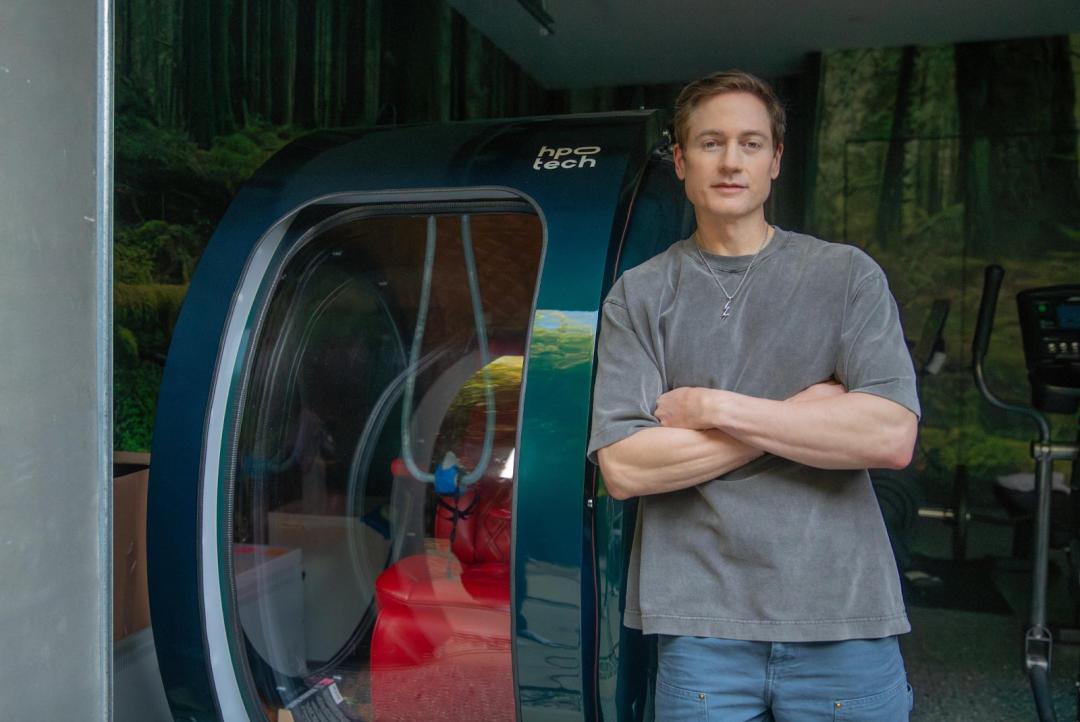
Title: I’m Close to Selling it, It’s a Pain-in-the-A**: Bryan Johnson on his Anti-Ageing Firm
Bryan Johnson, the US millionaire who has been making headlines for his reported annual expenditure of ₹17 crore on his age-reversal quest, has revealed in an interview that he is “close to” shutting down or selling his anti-ageing firm, Blueprint. In an unexpected turn of events, Johnson stated that he no longer finds the company a worthwhile investment, citing that it has become a “pain-in-the-a**” for him.
Johnson’s decision to potentially sell Blueprint comes as a surprise to many, given the significant amount of money he has been pouring into the company. However, it seems that the entrepreneur has grown disillusioned with the company’s progress and the impact it has had on his personal brand.
In the interview, Johnson expressed his frustration with the way people perceive him after learning about his involvement with Blueprint. He claimed that seeing the company has led to a decrease in credibility when it comes to his philosophy and ideas. Johnson stated, “I don’t need the money, and it’s a pain-in-the-a** company. I won’t make that trade-off.”
It appears that Johnson’s concerns about his reputation are rooted in the fact that many people view his age-reversal efforts as a vanity project, rather than a genuine pursuit of scientific discovery. By distancing himself from Blueprint, Johnson may be trying to restore his credibility and reputation as a serious entrepreneur and thinker.
Johnson’s decision to sell or shut down Blueprint also raises questions about the future of the company and its research. Blueprint has been at the forefront of anti-ageing research, with a focus on using stem cells and other technologies to reverse the signs of aging. If Johnson is no longer involved with the company, it remains to be seen what will happen to the research and development work being done by the firm.
Despite the uncertainty surrounding Blueprint’s future, it is clear that Johnson’s decision to potentially sell or shut down the company is a personal one. He has stated that he no longer finds the company a worthwhile investment, and that his concerns about his reputation and credibility are a major factor in his decision.
Johnson’s age-reversal quest has been a topic of fascination for many, and his decision to potentially sell or shut down Blueprint may be seen as a setback for those who have been following his progress. However, it is also important to remember that Johnson’s decision is a personal one, and that he has the right to prioritize his own interests and reputation.
In conclusion, Bryan Johnson’s decision to potentially sell or shut down his anti-ageing firm, Blueprint, is a significant development in the world of anti-ageing research. While the future of the company remains uncertain, it is clear that Johnson’s decision is a personal one, driven by his concerns about his reputation and credibility.
As we wait to see what the future holds for Blueprint, it is worth considering the impact that Johnson’s decision may have on the anti-ageing industry as a whole. Will other entrepreneurs and investors be deterred from pursuing anti-ageing research due to the perceived stigma surrounding the field? Or will Johnson’s decision create new opportunities for others to step in and continue the work he has started?
Only time will tell, but one thing is certain: Bryan Johnson’s decision to potentially sell or shut down Blueprint is a significant development that will have far-reaching implications for the world of anti-ageing research.






